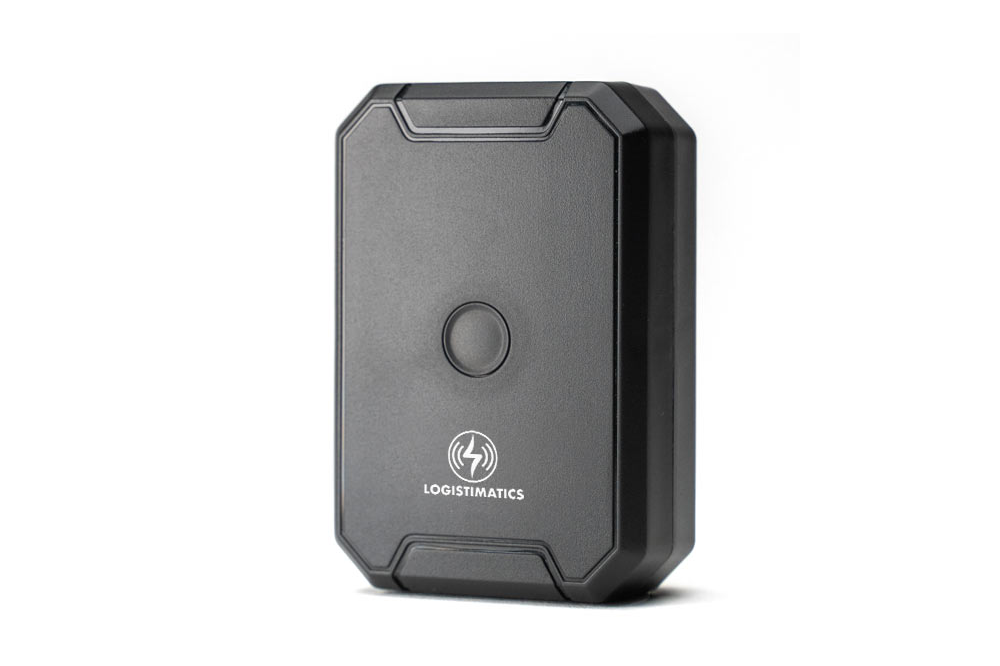5 Things to Consider When Purchasing a Vehicle GPS Tracker
 Posted by Logistimatics Team on May 10, 2022
Posted by Logistimatics Team on May 10, 2022
There’s no doubt that the Global Positioning System (GPS) has changed the way we interact with the world. From small smartwatches tracking your steps to relying on your smartphone to help navigate a new city, it seems like the GPS is virtually everywhere. However, a lot of these everyday consumer technologies can only go so far. Whether you’re looking to get specific data or just want additional security, you might want to look into getting a GPS tracker for your vehicle.
A GPS tracker can help you with specific tracking needs: from trying to track a teenager’s driving habits or keeping tabs on company assets. It can even help you track your car if it’s been stolen, greatly increasing your chances of getting it back. Adding a GPS tracker to your vehicle can provide more security and peace of mind to your life. Here are the top things to consider when purchasing a vehicle GPS tracker.
1. What do you need the GPS tracker for?
This is, of course, always the first question to answer. If you’re using it for home purposes, such as tracking where your loved ones are, you may only need one or two that are quite simple and basic. However, if you’re trying to track a company fleet of vehicles, you’ll likely need multiple trackers that can meet all of your requirements. Write down everything you may need to use the tracker for and let that guide your purchase.
2. What’s your budget?
Once you know your purpose for getting a GPS tracker for a vehicle, look at all your spending options. The cheapest trackers may not save you money in the long run. It may be limited in the real-time tracking it provides, have a shorter battery life, be far more breakable, or have other issues. You don’t need to shell out for the most expensive piece of equipment, but look at competing prices and see what you’re willing to pay.
Something else to consider is monthly subscriptions or other fees. Most GPS trackers require a monthly subscription to function. This covers tracking with a cell phone service, live audio, and other alerts.
3. What do the features offer?
Some trackers offer more than just real-time vehicle tracking. For example, if a loved one is out driving and gets into trouble, some trackers have a panic button they can push to notify authorities. Here are some other features that might be offered:
- If the tracker suddenly gets disconnected
- If the tracker moves beyond a set of geographic boundaries on the map
- Ability to see previous trips, set up alerts, and offer geofences
If you’re trying to set specific work hours for a fleet of vehicles, you’ll want to look for a tracker that allows for that. If you have unique needs that require extra work and attention, check out how customizable your tracker is.
Another feature to consider is signal strength. GPS is powerful, but it can be impacted when going through the mountains, heavily forested areas, or even by buildings (such as an underground parking lot).
4. What’s the battery life like?
Once again, this all boils down to what purpose you’re using the tracker for. If you’re tracking an entire fleet of vehicles and assets, you may only need a tracker that notifies you once a day and doesn’t need to be recharged every time. Luckily, there are batteries that can last up to 3 years on a single charge.
Alternatively, if you don’t even want to think about charging, there are trackers for vehicles—like Logistimatic’s Road-Wired Tracker—that don’t require charging. You can plug the tracker into your car and start tracking immediately.
If your purposes are for home and family and in need of something that’s simple and portable, you can get something like the Pocket Tracker that lasts 10 days and recharges easily. The tradeoff is a shorter battery life, but it’s easy to hide and carry around.
5. How easy is it to use?
You shouldn’t have to be a tech junkie to be able to use a GPS tracker. Most trackers should have an app you can access on iOS or Android systems. The app should have a user-friendly interface that makes tracking easy and setup a breeze, otherwise you won’t be able to experience all the benefits.
In addition, you’ll want to see what your comfort level is with installing it in your car (if that’s what you’re tracking). For example, if you have a plug-in tracker, you can get everything set up in minutes. If you’re getting one that’s hard-wired into your vehicle, it may take some initial installation time, but is easier to hide for when you want to keep your tracking on the downlow.
If you don’t want to worry about any of the installation process, the wireless trackers that require recharging will be your way to go.
Pulling it all together
While these five questions are only the beginning, they should help you get a firm foundation for snagging the perfect GPS tracker. By considering what you need it for, looking at your budget, and contemplating features, battery life, and ease of use, you’ll be able to find the right tracker that gives you the security and data you’ve been looking for.
No matter your cause, whether big or small, we can help you find the tracker that fits the bill. Be sure to check out our trackers and see what they can do for you.
